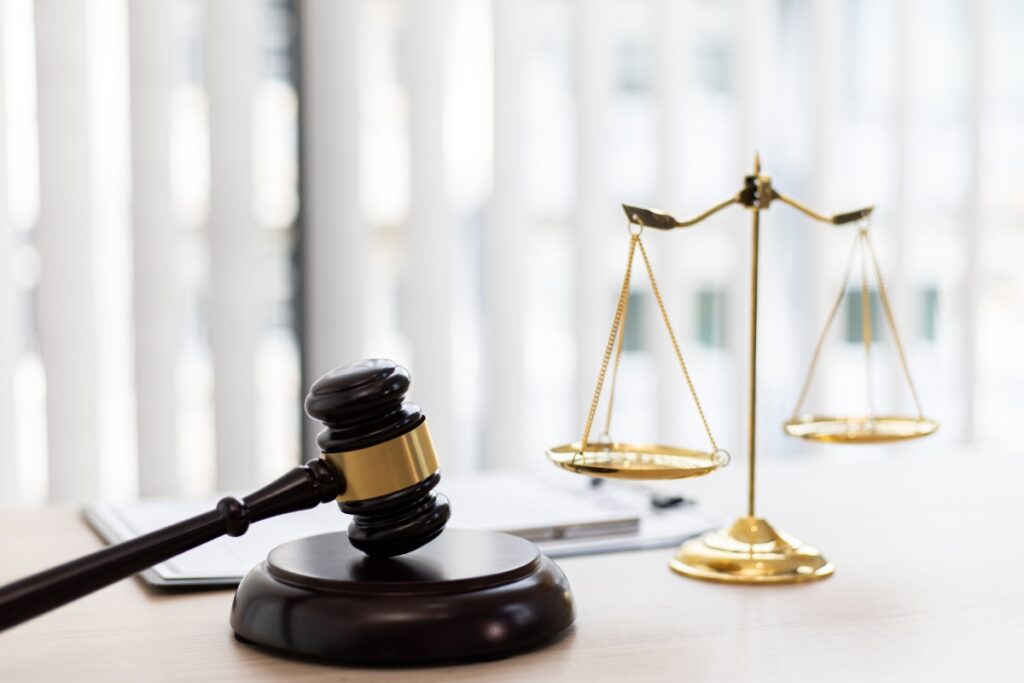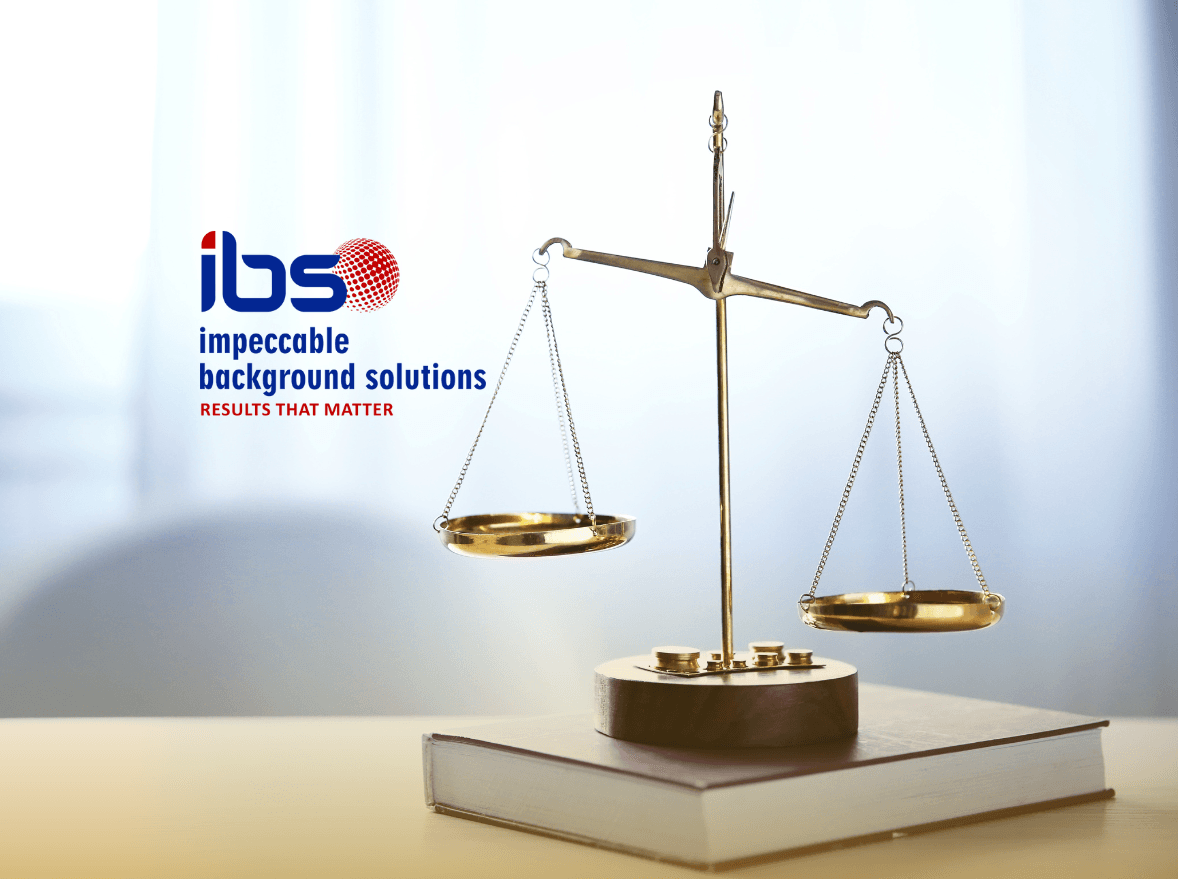When it comes to background checks, there is a wealth of information that can be uncovered. From employment history to credit scores, these checks are essential for a variety of reasons. But one factor that often plays a significant role in these investigations is the presence of incarceration records. Yes, you read that right – incarceration records.
These records, which document a person’s past prison sentences or time served in jail, can have a profound impact on background checks and the decisions made based on them.
Whether you have personal experiences related to incarceration records or are simply curious about the topic, join us as we unravel the intricate layers of this important aspect of background checks. Don’t miss out on understanding how these records can shape lives and the measures being taken to ensure fairness and equality in the process. Let’s dive in.
From Conviction to History: Exploring the Impact of Incarceration Records
Understanding Incarceration Records

Incarceration records, also known as jail or prison records, are official documents that detail a person’s time spent in a correctional facility. These records contain information about the individual’s arrest, charges, convictions, sentences, and any other relevant details related to their time behind bars. They are created and maintained by law enforcement agencies and correctional institutions.
When conducting a background check, access to incarceration records can provide valuable insights into an individual’s criminal history. Employers, for instance, use these records to assess the suitability of job applicants, particularly for positions that involve high levels of trust or responsibility. Landlords also rely on incarceration records to evaluate potential tenants, ensuring the safety and security of their properties.
Incarceration records can reveal a variety of criminal offenses, ranging from minor infractions to serious felonies. These records may include details about theft, assault, drug-related crimes, and even more severe offenses such as homicide or sexual assault. By reviewing these records, employers and landlords can make informed decisions about the potential risks associated with an individual.
It is important to note that incarceration records are a matter of public record in many jurisdictions. This means that they can be accessed by anyone, including employers, landlords, and the general public. However, the accessibility and availability of these records may vary from one jurisdiction to another. Some states have more stringent regulations regarding the disclosure of criminal records, while others have more lenient policies.
When using incarceration records as part of a background check, it is crucial to ensure accuracy and adhere to legal requirements. This includes obtaining the candidate’s consent to conduct the background check and complying with local and federal laws governing the use of such records. Additionally, it is essential to consider any relevant rehabilitation or reintegration efforts undertaken by the individual since their incarceration.
The Impact of Incarceration Records on Employment Opportunities

Incarceration records can have a significant impact on employment opportunities. When employers conduct background checks, they often come across these records and make judgments based on them. This can be a major barrier for individuals with a criminal history who are trying to reintegrate into society and find stable employment.
One of the main ways in which incarceration records affect employment opportunities is through the stigma associated with them. Many employers are reluctant to hire individuals with a criminal history, fearing that they may pose a risk to their company or other employees. This stigma can be particularly challenging for individuals who have served their time and are genuinely trying to turn their lives around.
Background checks, which are a standard part of the hiring process for many companies, can easily reveal an individual’s incarceration records. This information can influence an employer’s decision to hire or not to hire. Even if the offense is unrelated to the job in question, the presence of a criminal record can be enough to disqualify a candidate.
Furthermore, some industries have specific regulations or legal requirements that restrict or prohibit the hiring of individuals with certain types of criminal records. For example, individuals with a history of financial fraud may be barred from working in the banking or finance sector. These restrictions can further limit employment opportunities for those with incarceration records.
In addition to the stigma and legal restrictions, individuals with incarceration records may also face practical challenges when searching for employment. Many employers require job applicants to disclose their criminal history, which can be a daunting task for someone who is trying to move past their past mistakes. This disclosure requirement can create a sense of hopelessness and discourage individuals from even applying for jobs.
Fortunately, there are efforts being made to address these challenges and provide better opportunities for individuals with incarceration records. Some states have implemented “ban the box” policies, which prohibit or restrict employers from asking about criminal history on job applications. This allows individuals to be evaluated based on their qualifications and skills before their criminal record is considered.
Additionally, there are organizations and programs that specialize in supporting individuals with incarceration records in their job search and reintegration process. These programs offer resources such as job training, interview preparation, and connections to employers who are willing to give individuals with criminal records a second chance.
The Challenges Faced by Individuals with Incarceration Records

Individuals with incarceration records face a multitude of challenges that can significantly impact their lives. These challenges span across various aspects, including employment, housing, education, and social stigma. Understanding the difficulties faced by individuals with incarceration records is crucial for fostering a more inclusive and fair society.
One of the most significant challenges faced by individuals with incarceration records is finding employment. Many employers are reluctant to hire individuals with criminal records due to concerns about trust, reliability, and potential liability.
This creates a significant barrier to reintegration into society and can perpetuate a cycle of unemployment and recidivism. Additionally, certain industries and professions have specific regulations and restrictions that further limit job opportunities for these individuals.
Housing is another area where individuals with incarceration records encounter difficulties. Many landlords and property management companies conduct background checks as part of their screening process.
Having an incarceration record can lead to automatic disqualification or difficulty in securing housing, even if the offense is unrelated to housing or poses no threat to other residents. This lack of stable housing can contribute to homelessness and hinder successful reentry into society.
Access to education is also a challenge for individuals with incarceration records. Many educational institutions have policies that restrict or outright deny admission to individuals with certain types of criminal records.
This can hinder personal and professional development, limiting opportunities for growth and advancement. Without access to education, individuals may struggle to acquire the necessary skills and knowledge for employment in a competitive job market.
Social stigma is another significant challenge faced by individuals with incarceration records. Even after serving their sentence and reintegrating into society, they often face judgment, discrimination, and prejudice from others.
This stigma can create barriers to forming meaningful relationships, securing housing and employment, and reintegrating into their communities. Overcoming this stigma requires societal awareness, education, and a shift in attitudes towards individuals with incarceration records.
Legal Considerations Surrounding the Use of Incarceration Records in Background Checks

When it comes to conducting background checks, there are certain legal considerations that must be taken into account when utilizing incarceration records. These records, which detail an individual’s time spent in prison or jail, can provide valuable information about a person’s criminal history. However, there are laws in place that regulate how these records can be used and accessed.
One important legal consideration regarding the use of incarceration records in background checks is compliance with the Fair Credit Reporting Act (FCRA). The FCRA sets guidelines and requirements for consumer reporting agencies, including those that provide background check services.
This means that when using incarceration records as part of a background check, it is crucial to ensure compliance with the FCRA’s provisions, such as obtaining proper consent from the individual being screened and providing them with their rights under the law.
In addition to the FCRA, there are also state-specific laws that govern the use of incarceration records in background checks. These laws can vary from state to state, so it is essential to familiarize oneself with the regulations in the specific jurisdiction where the background check is being conducted.
Some states have restrictions on how far back an employer can consider an individual’s incarceration records, while others may have laws in place to protect individuals with certain types of convictions from discrimination.
Furthermore, it is important to note that the use of incarceration records in background checks should be done in a fair and non-discriminatory manner. The Equal Employment Opportunity Commission (EEOC) has issued guidelines that emphasize the need for employers to consider the nature and severity of an individual’s offense, as well as the time that has passed since the conviction.
This is to prevent unfair discrimination against individuals who may have made mistakes in the past but have since rehabilitated and are deserving of a second chance.
Efforts Towards Fairness and Equality in Background Checks

Efforts towards fairness and equality in background checks are crucial in ensuring a just and balanced society. One area that requires careful consideration is the impact of incarceration records on background checks. Incarceration records can have far-reaching consequences on individuals’ lives, affecting their employment prospects, housing opportunities, and overall reintegration into society.
In recent years, there have been efforts to address the potential biases and disadvantages associated with incarceration records in background checks. One such effort is the “ban the box” movement, which advocates for the removal of questions regarding criminal history from job applications. This initiative aims to give individuals with criminal records a fair chance to be considered for employment based on their qualifications and skills, rather than solely on their past convictions.
Additionally, some jurisdictions have implemented “fair chance” or “second chance” policies that restrict employers’ ability to consider certain types of criminal records during the hiring process. These policies are intended to level the playing field for individuals with a criminal history, giving them an opportunity to demonstrate their rehabilitation and suitability for employment.
Another aspect that contributes to fairness and equality in background checks is the accuracy and timeliness of the information being considered. It is essential that incarceration records are up-to-date and correctly reflect an individual’s criminal history. Inaccurate or outdated records can lead to false assumptions and unjust decisions, perpetuating unfairness and inequality.
To ensure fairness, there have been calls for increased transparency and accountability in the background check process. Individuals with a criminal record should have the right to review and correct any inaccuracies in their records. Employers and background check agencies also have a responsibility to use reliable and reputable sources for obtaining and verifying information.
Furthermore, efforts are being made to address the disproportionate impact of incarceration records on marginalized communities. Studies have shown that certain minority groups are more likely to have a criminal record, often due to systemic biases within the criminal justice system. Recognizing this disparity, steps are being taken to reevaluate the weight given to incarceration records and to implement measures that consider the underlying factors contributing to an individual’s involvement with the criminal justice system.
In conclusion, efforts towards fairness and equality in background checks, specifically regarding the impact of incarceration records, are essential for a just society. The “ban the box” movement, fair chance policies, accuracy and timeliness of records, transparency, and addressing disparities are all important steps in ensuring that individuals are not unfairly disadvantaged based on their past criminal history. By striving for fairness and equality, we can create a more inclusive and just society where everyone has the opportunity to succeed and contribute to their fullest potential.
Conclusion: Navigating the Complexities of Incarceration Records in Background Checks
Incarceration records play a crucial role in background checks, providing valuable information about an individual’s criminal history. However, the process of accessing and interpreting these records can be complex. Understanding the intricacies involved in navigating incarceration records is essential for conducting thorough and accurate background checks.
By staying informed and following proper procedures, employers and organizations can make informed decisions while respecting privacy rights and ensuring fairness in the hiring process.
At Impeccable Background Solutions, we specialize in providing thorough background screening services for individuals and businesses. Our team of experts can assist you in conducting a comprehensive check that offers detailed information about an individual’s history, ensuring that you make the best choice for your organization.
Navigating the complexities of incarceration records in background checks is essential for conducting thorough and accurate screenings. Understanding the different types of records, legal requirements, and interpretation methods is crucial for obtaining reliable information. This is precisely why entrusting a reputable background check company is a wise choice.
With the assistance of Impeccable Background Solutions, you can confidently discover the truth and attain peace of mind. Take charge today by contacting our specialists or giving us a call at 404-796-8419 for a comprehensive and dependable background record check. Leave no room for doubt – reach out to us now!





